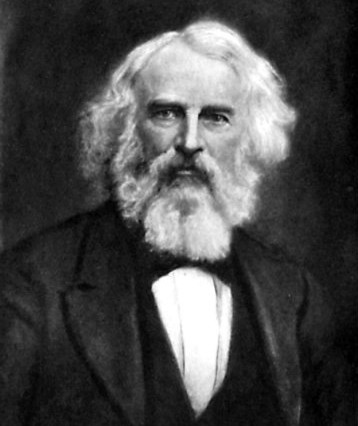Introduction
Henry Wadsworth Longfellow (1807–82) was a celebrated American poet of the 19th century. Born in Portland, Maine to a well-to-do family, Longfellow began writing poetry at an early age: His first poem, “The Battle of Lovell’s Pond,” was published in the Portland Gazette when he was 13. After attending Bowdoin College (where he became good friends with Nathaniel Hawthorne) and studying in Europe, Longfellow taught first at Bowdoin and then later at Harvard College. “The Village Blacksmith,” first published in the literary magazine The Knickerbocker in 1840, pays tribute to an ancestor, Stephen Longfellow, who earns “a night’s repose” by his labor.
What, according to the poem, are the meanings and satisfactions of work? In what lies the dignity of the blacksmith and his work? Do you admire (or even envy) the blacksmith? What does the poet mean, in the last stanza, by suggesting that the blacksmith models the truth about how life should be lived? Do you agree with Longfellow’s suggestion here?
Under a spreading chestnut tree
The village smithy stands;
The smith, a mighty man is he,
With large and sinewy hands;
And the muscles of his brawny arms
Are strong as iron bands.
His hair is crisp, and black, and long,
His face is like the tan;
His brow is wet with honest sweat,
He earns whate’er he can,
And looks the whole world in the face,
For he owes not any man.
Week in, week out, from morn till night,
You can hear his bellows blow;
You can hear him swing his heavy sledge
With measured beat and slow,
Like a sexton ringing the village bell,
When the evening sun is low.
And children coming home from school
Look in at the open door;
They love to see the flaming forge,
And hear the bellows roar,
And catch the burning sparks that fly
Like chaff from a threshing-floor.
He goes on Sunday to the church,
And sits among his boys;
He hears the parson pray and preach,
He hears his daughter’s voice,
Singing in the village choir,
And it makes his heart rejoice.
It sounds to him like her mother’s voice,
Singing in Paradise!
He needs must think of her once more,
How in the grave she lies;
And with his hard, rough hand he wipes
A tear out of his eyes.
Toiling,—rejoicing,—sorrowing,
Onwards through life he goes;
Each morning sees some task begin,
Each evening sees it close;
Something attempted, something done,
Has earned a night’s repose.
Thanks, thanks to thee, my worthy friend,
For the lesson thou hast taught!
Thus at the flaming forge of life
Our fortunes must be wrought;
Thus on its sounding anvil shaped
Each burning deed and thought!
Return to The Meaning of Labor Day.



Post a Comment